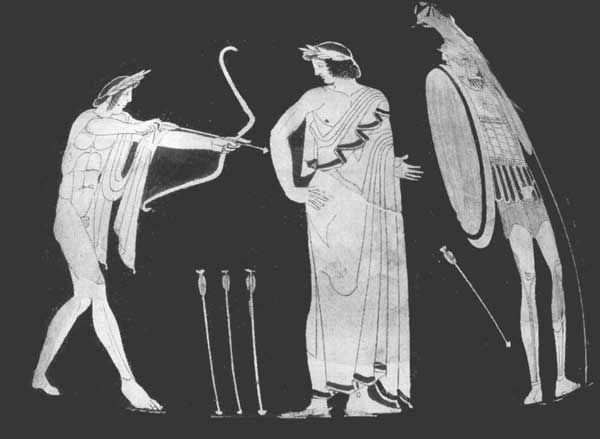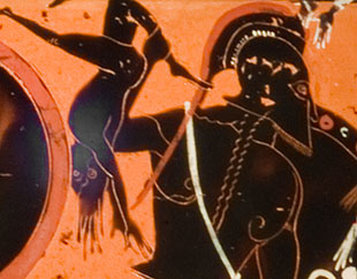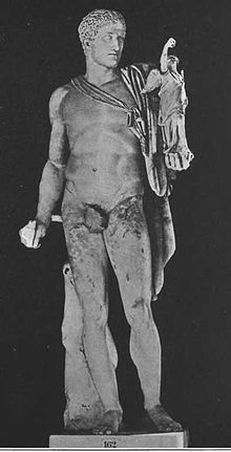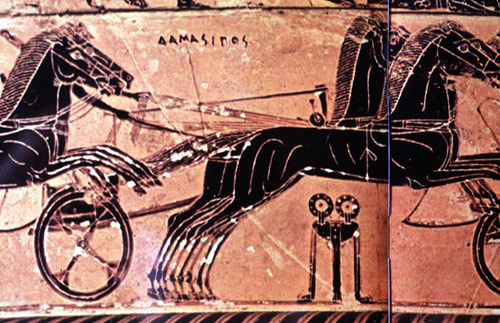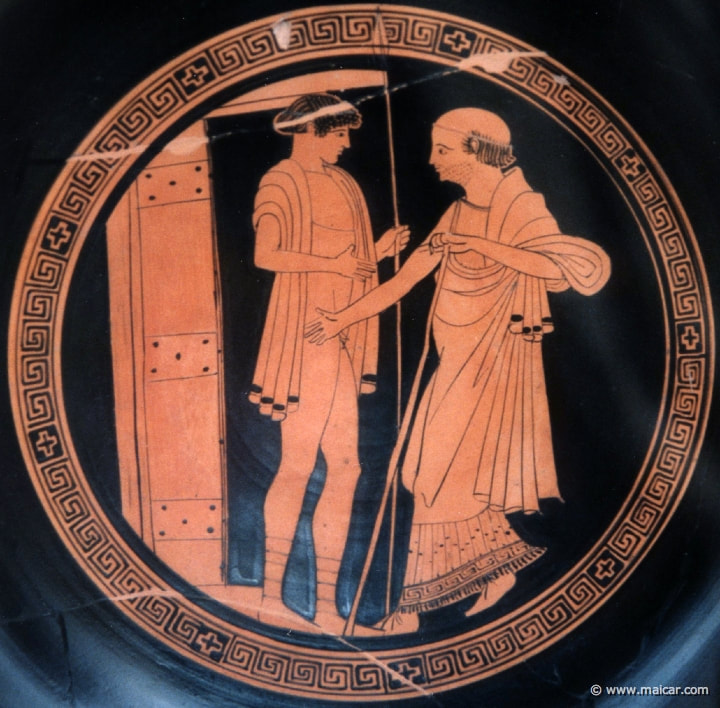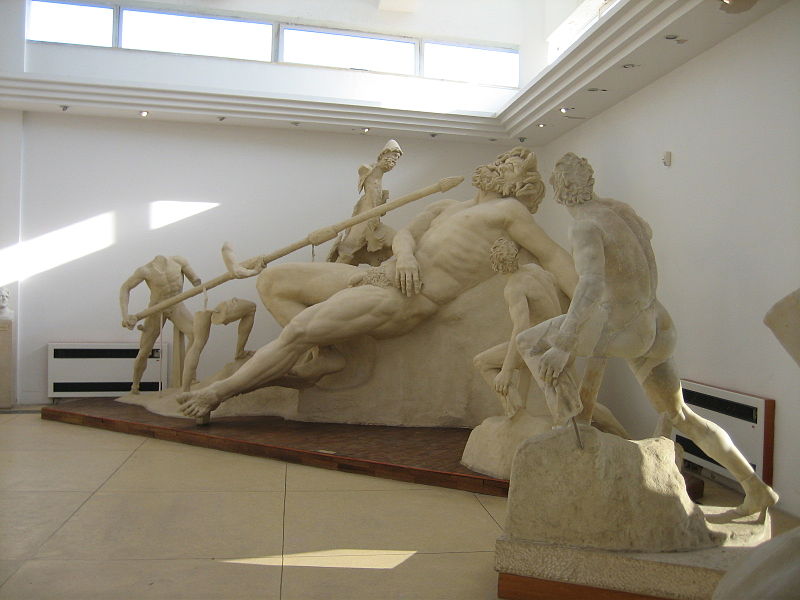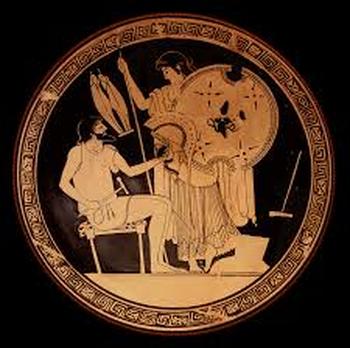|
Glossary:
|
Death of Achilles feat. Paris and Apollo (c. 460 BC)
Death of Astyanax (c 500 BC)
Diomedes with the Palladium (c 1425 CE)
The Francois Vase depicting Patroclus' funeral games (570/560 BC)
Hermes guides Priam.
The Nine Muses
Reconstruction of Odysseus blinding Polyphemus from the villa of Emperor Tiberius at Sperlonga, 1st century AD
Thetis and Hephaestus.
|
